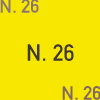Education and the Pandemic: Distance Learning and the School-Family Relationship
DOI:
https://doi.org/10.7203/realia.26.18078Keywords:
ool, COVID-19, distance learning, quali-quantitative research, citizenship, social skills Abstract
Abstract
In this paper we present the preliminary results of a survey administered to Italian stu- dents, teachers and families to detect the conditions prevailing in the education sector in the time of Covid-19. The aims of the study were to analyze teachers’ new citizenship skills and families’ relationship skills in order to create a new school-family agreement that is suitable not only for face-to-face lessons but also for distance learning and that incorporates new participation compe- tences from all those involved. Responses to the questionnaires, created in semi-structured format, were received from 2,000 teachers, families and students from all over Italy. This explorative phase highlighted the profound distance-learning revolution that has been adopted by over 90% of edu- cation systems but that has also created enormous difficulties from the emotional and relational perspectives. Aspects such as personalization and individuality in the learning process have been deferred, especially for those with disabilities. The conclusions intend to open to feasible social- pedagogical projects that respond to educational, digital and social needs drawn from this research, heralding that the pandemic has brought us into a new age of education.
 Downloads
Downloads
 References
References
Save-the-Children. (2020). L’impatto del coronavirus sulla povertà educativa. Retrieved from https://s3.savethechildren.it/public/files/uploads/pubblicazioni/limpatto-del-coronavirus-sulla-poverta-educativa_0.pdf
Bailey, K. D. (1994). Methods of Social Research (fourth edition). New York: The Free Press. Baldacci, M. (2014a). La realtà educativa e la ricerca-azione in pedagogia. Educational, Cultural and Psicological Studies(9). https://doi.org/10.7358/ecps-2014-009-bald
Baldacci, M. (2014b). Per un’idea di scuola. Istruzione, lavoro e democrazia. Milano: Franco Angeli.
Baldacci, M. (2020). La pandemia e il fallimento della scuola-azienda. Micro-Mega(4), 121– 130.
Benvenuto, G. (2015). Stili e metodi della ricerca educativa. Roma: Carocci.
Bruzzone, D. (2016). L’esercizio dei sensi. Fenomenologia ed estetica della relazione educativa.
MIlano: Franco Angeli.
Calvani, A. (2017). Manuale di tecnologia dell’educazione. Pisa: Edizioni ETS. Calvani, A. (2019). Che cos’è la tecnologia dell’educazione. Roma: Carocci.
Cambi, F. (2006). Le pedagogie del Novecento. Roma-Bari: Editori Laterza.
Carruba, M. C. (2014). Tecnologia e Disabilità. Pedagogia speciale e tecnologie per un’inclusione possibile. Lecce: Pensa Multimedia.
Chiosso, G. (2011). Alfabeti d’Italia. La lotta contro l’ignoranza nell’Italia unita. Torino: Società Editrice Internazionale.
Cohen, L., Manion, L., & Morrison, K. (2007). Research Methods in Education. Sixth edition.
Oxon: Routledge.
Corbetta, P. (2003). La ricerca sociale: metodologia e tecniche. Bologna: il Mulino.
Covato, C. (1996). Un’identità divisa. Diventare maestre in Italia fra Otto e Novecento. Roma: Archivio Guido Izzi.
Creswell, J. W. (2014). Qualitative inquiry & research design. Choosing Among Five Approaches.Second Edition. London: Sage.
Dewey, J. (1915). The School and Society. Chicago: The University of Chicago Press. Doniti, P. (2015). L’enigma della relazione. Bologna: Edizioni Mimesis.
Ferrante, A., Passerini, M. B. G., & Palmieri, C. (2020). L’educazione e i margini. Temi, esperienze e prospettive per una pedagogia dell’inclusione sociale. Milano: Guerini.
Ferrari, M. (2020). L’educazione esclusiva. Pedagogia della distinzione sociale tra XV e XXI secolo. Brescia: Scholé.
Frabboni, F. (2009). Sognando una scuola normale. Palermo: Sellerio.
Franco, G. D. (2010). Il campionamento nelle scienze umane. Teoria e pratica. Milano: Franco Angeli.
Margiotta, U. (2018). La formazione dei talenti. Tutti i bambini sono un dono, il talento non è un dono. Milano: Franco Angeli.
Milani, L. (2014). Competenza pedagogica e progettualità educativa. Brescia: La Scuola. Montessori, M. (2000). L’autoeducazione. Milano: Garzanti-Elefanti.
Pati, L. (2008). La corresponsabilità educativa tra docenti e genitori. Milano: Pedagogia e Vita. Raja, D. S. (2016). Bridging the disability divide through digital technologies. Background Paper for the 2016 World Development Report: Digital Dividends. World Bank Group.
Rivoltella, P. C. (2020). Superare facili contrapposizioni. In presenza o a distanza la didattica merita di più (Vol. 27). Retrieved from https://www.glonaabot.it/articoli-correlati/ superare-facili-contrapposizioni-in-presenza-o-a-distanza-la-didattica-merita-di-piu
Roncaglia, G. (2020). Cosa succede a settembre? Scuola e didattica a distanza ai tempi del COVID-19. Roma-Bari: Laterza.
Unterhalter, E. S., & North, A. (2017). Education, Poverty and Global Goals for Gender Equality: How People Make Policy Happen. Abingdon: Routledge.
Volpicella, A. M. (2017). Una bussola per la scuola. Nuove strategie pedagogiche e didattiche per gli studenti di oggi (A. M. Volpicella & G. Crescenza, Eds.). Roma: Edizioni Conoscenza.
Volpicella, A. M. (2020a). Apprendere a insegnare. Competenze e sensibilità della professione docente (A. M. Volpicella & G. Crescenza, Eds.). Roma: Edizioni Conoscenza.
Volpicella, A. M. (2020b). Sapere. Fare. Essere. Nella scuola di oggi. In A. M. Volpicella & G. Crescenza (Eds.), Apprendere a insegnare. Competenze e sensibilità della professione docente (pp. 25–70). Roma: Edizioni Conoscenza.
Published
How to Cite
-
Abstract3403
-
PDF1775
-
EPUB266
-
HTML254
-
XML191
Issue
Section
License
Authors who publish with this journal agree to the following terms:
- The Universitat de València is the editor of Research in Education and Learning Innovation Archives (REALIA) and retains the copyright of all that is published in the journal, while it allows and favours reuse under a copyleft license.
- The originals published in this journal are – unless otherwise specified – under a Creative Commons License: Attribution-NonComercial-ShareAlike 4.0 International (CC BY-NC-SA 4.0).
Research in Education and Learning Innovation Archives (REALIA) encourages authors to disseminate and give visibility to their research published in this journal. For this, REALIA wishes to inform that:
- Authors retain copyright and grant the journal right of first publication.
- The work is simultaneously licensed under a Creative Commons Attribution License: Attribution-NonComercial-ShareAlike 4.0 International (CC BY-NC-SA 4.0).
- Self-archive: Authors are permitted and encouraged to post their work online (e.g. in institutional repositories or on their website) to promote greater visibility and citation, with an acknowledgement of its first publication in this journal.




